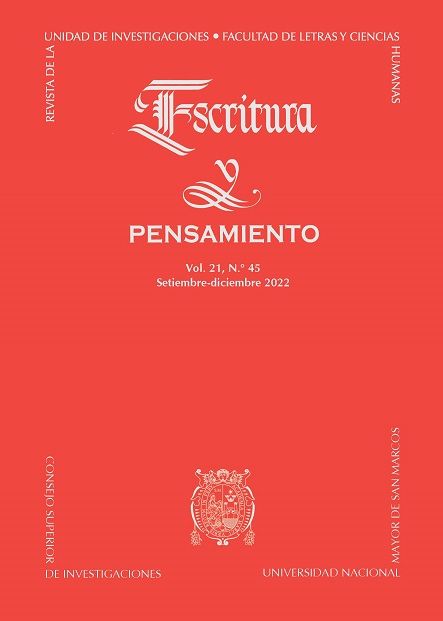Big data, epistemological problems and epistemic contextualism
DOI:
https://doi.org/10.15381/escrypensam.v21i45.23806Keywords:
epistemology, big data, data science, contextualismAbstract
Big data, and data science have become key instruments for the generation of knowledge. In this context, it is interesting to understand how these methodologies influence what users from different fields (scientific, economic, financial, etc.) can say about what they know about the world and what they do not know. This article describes the epistemological problems derived from the use of big data, it also proposes to consider to what extent this new technological reality can be a source of epistemic contextualism, and how, using the rules proposed in by Lewis (1996), can find a point of understanding between those who see the world as a huge set of data containing the answer to problems, and those who believe that only the scientific method and hypothesis testing can achieve the most accurate knowledge about the world's phenomena.
References
Ahonen, P. (2015). Institutionalizing Big Data methods in social and political research. Big Data and Society, 2(2), 1–12. https://doi.org/10.1177/2053951715591224
Baumann, P. (2016). Epistemic Contextualism A Defense. Oxford University Press.
Conway, D. (2010). The Data Science Venn Diagram. Retrieved from http://drewconway.com/zia/2013/3/26/the-data-sciencevenn-diagram
Davenport, T. H., & Prusak, L. (1997). Information ecology. Oxford University Press.
Driscoll, K., & Walker, S. (2014). Working within a black box: Transparency in the collection and production of big twitter data. International Journal of Communication, 8(1), 1745-1764.
Drucker, P. (1988). The Coming of the New Organization. Retrieved from https://hbr.org/1988/01/the-coming-of-the-new-organization
Favaretto, M., de Clercq, E., Schneble, C. O., & Elger, B. S. (2020). What is your definition of Big Data? Researchers’ understanding of the phenomenon of the decade. PLoS ONE, 15(2), 1-20. https://doi.org/10.1371/journal.pone.0228987
Frické, M. (2015). Big Data and Its Epistemology. Journal of the Association for Information Science and Technology, 66(April), 651–661. https://doi.org/10.1002/asi
Günther, W. A., Rezazade Mehrizi, M. H., Huysman, M., & Feldberg, F. (2017). Debating big data: A literature review on realizing value from big data. Journal of Strategic Information Systems, 26(3), 191-209. https://doi.org/10.1016/j.jsis.2017.07.003
Hekler, E. B., Klasnja, P., Chevance, G., Golaszewski, N. M., Lewis, D., & Sim, I. (2019). Why we need a small data paradigm. BMC Medicine, 17(1), 1-9. https://doi.org/10.1186/s12916-019-1366-x
Hirschheim, R. (2021). The attack on understanding: How big data and theory have led us astray: A comment on Gary Smith’s Data Mining Fool’s Gold. Journal of Information Technology, 36(2), 176-183. https://doi.org/10.1177/0268396220967677
Ichikawa, J. J. (2017). The Routledge Handbook of Epistemic Contextualism. The Routledge Handbook of Epistemic Contextualism. https://doi.org/10.4324/9781003043645
Jones, M. (2019). What we talk about when we talk about (big) data. Journal of Strategic Information Systems, 28(1), 3-16. https://doi.org/10.1016/j.jsis.2018.10.005
Lee, A. J., & Cook, P. S. (2020). The myth of the “data-driven” society: Exploring the interactions of data interfaces, circulations, and abstractions. Sociology Compass, 14(1), 1-14. https://doi.org/10.1111/soc4.12749
Leonelli, S. (2019). Cinq façons dont les données massive nuisent à la. Lewis, D. (1996). Elusive knowledge. Australasian Journal of Philosophy, 74(4), 549-567. https://doi.org/10.1080/00048409612347521
Mayer-Schönberger, V., & Cukier, K. (2013). Big Data: A Revolution That Will Transform How We Live, Work and Think.
Mazzocchi, F. (2015). Could Big Data be the end of theory in science? EMBO Reports, 16(10), 1250-1255. https://doi.org/10.15252/embr.201541001
Obar, J. A. (2020). Sunlight alone is not a disinfectant: Consent and the futility of opening Big Data black boxes (without assistance). Big Data and Society, 7(1). https://doi.org/10.1177/2053951720935615
Rysiew, P. (2021). Epistemic Contextualism. Sanjuán, M. (2021). On upholding empirical evidence. McIntyre in the Scientific Attitude. Daimon, 0507(82), 189-195. https://doi.org/10.6018/DAIMON.436061
Sloot, B., Broeders, D., & Schrijvers, E. (2016). Exploring the Boundaries of Big Data. Exploring the Boundaries of Big Data. https://doi.org/10.5117/9789462983588
Succi, S., & Coveney, P. V. (2019). Big data: The end of the scientific method? Philosophical Transactions of the Royal Society A: Mathematical, Physical and Engineering Sciences, 377(2142). https://doi.org/10.1098/rsta.2018.0145
van Benthem, J., & Pacuit, E. (2011). Dynamic Logics of Evidence-Based Beliefs. Studia Logica, 99(1), 61–92. https://doi.org/10.1007/s11225-011-9347-x
Van Der Sloot, B., Broeders, D., & Schrijvers, E. (2016). Exploring the Boundaries of Big Data.
Downloads
Published
Issue
Section
License
Copyright (c) 2022 José Carlos Chahuara Quispe

This work is licensed under a Creative Commons Attribution 4.0 International License.
AUTHORS RETAIN THEIR RIGHTS:
a. The authors retain their trademark and patent rights, and also over any process or procedure described in the article.
b. The authors retain the right to share, copy, distribute, execute and publicly communicate the article published in the Escritura y Pensamiento (for example, place it in an institutional repository or publish as part a book), with acknowledgment of its initial publication by Escritura y Pensamiento.
c. Authors retain the right to make a subsequent publication of their work, to use the article or any part of it (for example: a compilation of their work, lecture notes, thesis, or for a book), provided that they indicate the source of publication (authors of the work, journal, volume, number and date).













